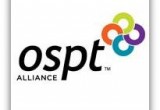Deutsche Telekom supports CIPURSE standard in the mobile ecosystem
03 December, 2013
category: Contactless, Smart Cards, Transit
Deutsche Telekom, one of the world’s leading integrated telecommunications companies with 140 million mobile customers, has joined the OSPT Alliance as an Associate Member.
The Group is the first mobile network operator to join the alliance, and will work with the other members to help broaden support for the CIPURSE open security standard by the ecosystem of mobile operators, enabling it to gain greater acceptance in that market.
The open security standard addresses the need by local and regional transit authorities for future-proof fare collection systems with more advanced security than currently in use. CIPURSE promotes vendor neutrality, cross-vendor system interoperability, lower technology adoption risks, higher quality and improved market responsiveness, all of which result in lower operating costs and greater flexibility for transport system operators.
The CIPURSE standard is capable of being applied to a broad range of generic contactless applications including transport, access control, loyalty and couponing, said Arnd Gallmann, vice president, terminal technology at Deutsche Telekom. Proprietary solutions currently on the market are closed and present an obstacle the industry must overcome to achieve broader acceptance of contactless technology in the marketplace.
The secure CIPURSE V2 standard comprises a single, consistent set of specifications for all security, personalization, administration and life-cycle management functions needed to create a broad range of interoperable transit applications – from inexpensive single-ride or daily paper tickets to rechargeable fixed-count or weekly plastic tickets to longer-term smart card- or smart phone-based commuter tickets that can also support loyalty and other applications.
According to Deutsche Telekom, open standards are central to the future of the telecommunications industry, and in the near future, contactless technology will be an integral part of most mobile devices, creating opportunities for mobile operators to develop new value-added applications and services.



